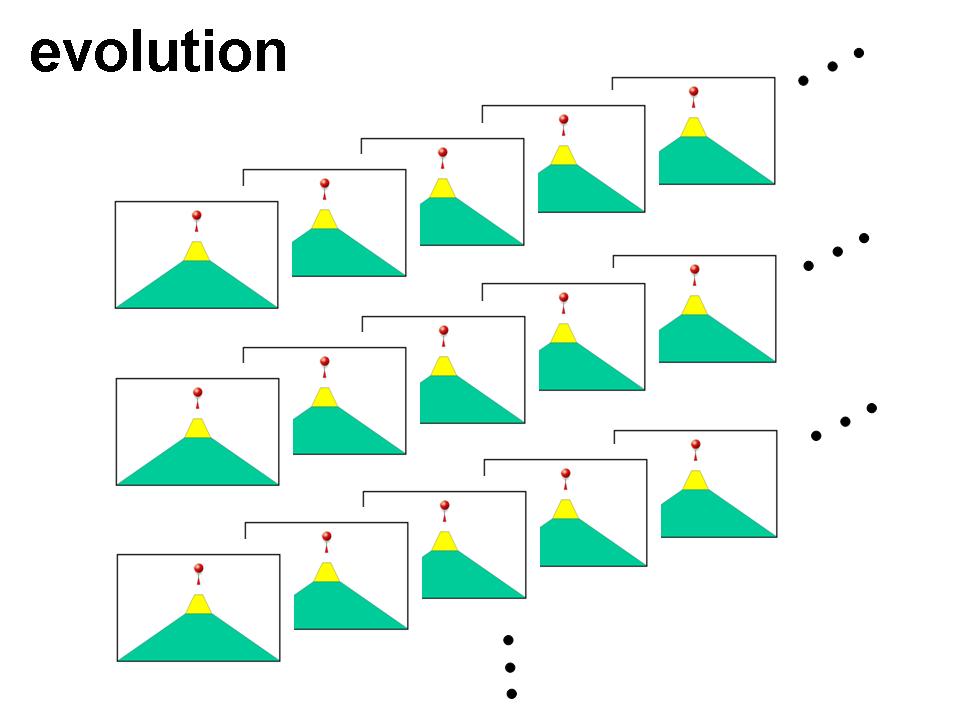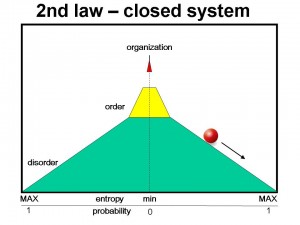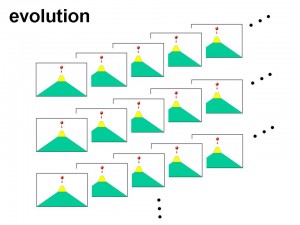Definition of the 2nd law of thermodynamics (SLoT).
This law (in its statistical mechanics sense) states that an isolated system goes towards its more probable states (those more numerous). Since the disordered states are countless, while the ordered/organized ones are few, a closed system spontaneously goes towards disorder/disorganization (related to entropy).
Difference between order and organization.
Increase of order implies decrease of entropy. Examples of order in nature are crystals; soap bubbles and raindrops are examples of naturally ordered quasi-spheres. Examples of order in human artefacts are the pattern of wood in a fence and the configuration of seats in a cinema.
Organization also implies persistent decrease of entropy, but is far more and far higher than order. Organization is qualitatively different from order. Organization always involves functional hierarchies and complex specified information (CSI). Examples of organization in nature are cells and organisms. Examples of organization in human technology are engines and computers.
A key point: the relation between organization and entropy is non symmetrical. (Intuitive example of non symmetrical relation: rain implies decrease of dryness, but decrease of dryness does not imply rain – decrease of dryness may well have other causes.) While organization implies persistent decrease of entropy, a decrease of entropy alone does not imply organization. Put differently: while entropy destroys organization, its opposite – neghentropy – doesn’t create organization. While it is true that what decreases order destroys also organization, it is false that what increases order creates also organization.
By increasing order we don’t get organization, like by increasing numbers we don’t get elephants or spaceships, like by increasing a rectangle we don’t get a circle or a fractal. Organization is not at all the limit which order tends to. Between increasing order and organization there is a deep discontinuity, a “hole”.
Graphical representation of the 2nd law.
See this picture:
Where the organized state (red zone) is one, the ordered states (yellow zone) are some and the disordered states (green zone) are countless. Since the disordered states are far more numerous than the other states they are more probable (leading to the continue tendency for disorder stated by the 2nd law). In the picture the 2nd law tendency is symbolized by the gravity force applied to the red ball. The red ball always tends towards the bottom, towards the disordered states. The discontinuity between organization and order – the “hole” – is represented by the tunnel between the red zone and the yellow zone. The ball never reaches the red zone of organization because, also if it climbs the mountain, it falls in the hole and crosses the tunnel.
Biological unguided evolution.
Evolution supposes that all the biological organization on Earth arose spontaneously (naturalistic origin of life + naturalistic origin of species).
Corollary of the 2nd law.
In an isolated system, organization never increases spontaneously. Hence the 2nd law refutes evolution. The absurdity of evolution is illustrated in the following picture:
Evolution would involve countless scenarios where the red balls stay permanently on the top of the peaks. Consequently the 2nd law disproves evolution because evolution would represent a set of events practically impossible.
Evolutionist “compensation argument”.
To rebut the above corollary, usually evolutionists resort to this argument. Since the Earth is not isolated, the 2nd law does not forbid a local (on Earth) decreases in entropy (which is all biological organisms represent, and no more than evolution is posited to do), gained at the cost of increased entropy in the surroundings (the solar system) (or, as long as the system exports a sufficient amount of entropy to its surroundings). So evolution can happen on Earth.
Refutation of the “compensation argument”.
The main counter-point is that, no, decrease in entropy is not “all biological organisms represent”. Organisms eminently represent organization. They are even ultra-complex systems. As said above, simple decrease in entropy is not organization. Evolutionists use “entropy” as a “free lunch” for evolution: entropy increases there, so entropy decrease here and organisms arise here at zero cost, while the 2nd law is safe. Too good to be true. Since entropy is related to disorder, then I cause a big mess (easy task) there to get organization (difficult task) here? Do you see the nonsense?
Second, call A the open system and B its surroundings. “Increased entropy in the surroundings” means that B has increased its disorder, going towards a more disordered state. This additional disorder in B becomes (in the mind of evolutionists) sort of “money” to pay the organization in A. Just this concept appears paradoxical: to pay organization by means of disorder. It is like to say: a disease in my wife 🙁 increases my health :).
Third, the reasoning is also absurd when we speak of probability. “Increased entropy in the surroundings” means that in B happened events more probable than the events happened before. These more probable events become (in the mind of evolutionists) sort of “magic” that creates organization in A. In turn, this organization in A is events with low probability that happen. So the whole reasoning is: probable events happened in B cause improbable events in A. It is like to say: the shopping expenses of my wife 🙁 cause my winning the lottery :).
In short, the evolutionist “compensation argument” is something like “non-X causes X”. It helps exactly zero the case for evolution, and doesn’t save evolution against the 2nd law.
The bottom line is: improbable events related to organization in a system remain improbable independently from the fact that we consider the system closed or open. Unless evolutionists are able to prove that some external cause is really able to reduce somehow such improbabilities, by injecting CSI to create organization. So far evolutionists have not succeeded in such task, their “compensation argument” is laughable. While IDers have a name for an organizational cause: intelligence.


